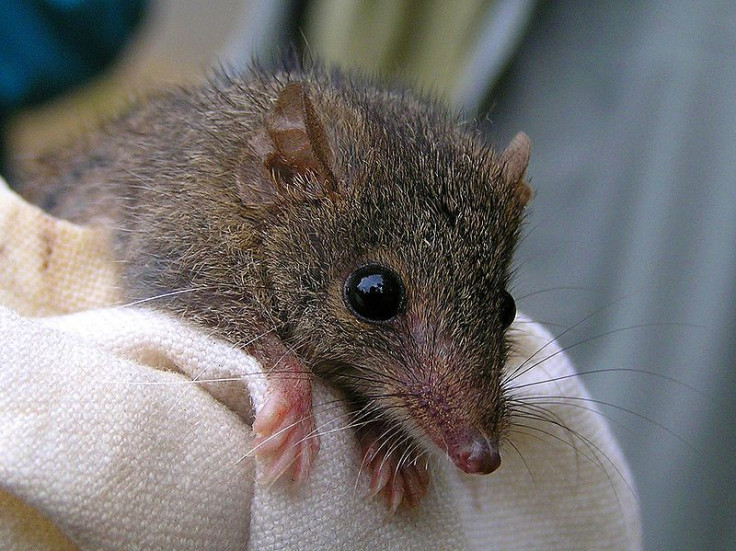New Marsupial Species Dies During Sex, ‘Promiscuous’ Black-Tailed Antechinus Mates For Hours Until Its Body Shuts Down

A recently discovered species of Australian marsupial is so dedicated to spreading the love he literally dies while doing it. The black-tailed antechinus, found at high altitudes in the wet areas of southeast Queensland and northeast New South Wales, partakes in marathon mating sessions that can last up to 14 hours, with each marsupial cavorting with several partners during that time.
Unfortunately for the male black-tailed antechinus, these feverish marsupial orgies often prove fatal. All that exertion raises their stress hormone levels dramatically, eventually causing the males’ systems to shut down, according to Reuters.
"It's frenetic, there's no courtship; the males will just grab the females and both will mate promiscuously," Andrew Baker, head of the research team from the Queensland University of Technology who made the discovery, told Reuters.
The black-tailed variety is the third new species of antechinus discovered by Baker’s research team over the past few years. Animals of the antechinus genus are indigenous to Australia and New Guinea. The small, carnivorous mammals feed on invertebrates like spiders, beetles and weevils.
The new species of mammal is about the size of a mouse and has a shaggy coat of hair, an orange-brown-colored rump and a black tail.
Their mating season lasts for weeks every year. Few males survive the ordeal. An excess of stress hormone in a male antechinus’ system can degrade his body tissue, causing his immune system to collapse, hemorrhaging and infections.
The hardier female black-tailed antechinus, on the other hand, can actually block the production of the stress hormone. After mating with several males, the females give birth to young sired by several fathers.
Researchers detailed the new species of marsupial in an article published in the journal Zootaxa.
Previous studies have identified several animal species, including certain insects, that practice suicidal reproduction, or semelparity. Other well-known examples of sexual suicide in animals are the Pacific salmon, the Brazilian slender opossum and certain arachnids.
Scientists have postulated several theories about how a species benefits from suicidal reproduction. One theory is that the practice evolved as a way to ensure the survival of the offspring during food shortages.
“We found that males of species with shorter mating seasons are less likely to survive after mating," Diana Fisher, an ecologist at the University of Queensland, told National Geographic last year. "Competitive effort has a survival cost— species that spend more energy on mating in the first breeding season risk never having another chance to breed."
Another idea for why marsupials die during sex is that by sacrificing themselves, the males have a better chance of passing on their genes, the logic being that the more they mate, the more likely their sperm will fertilize a female egg.
"Given that there's likely a trade-off between how much effort you put into reproduction and your chances of survival to the next year, it's much easier to make the choice of putting everything into reproduction now if your chances of surviving to the next year are really low anyway," Truman Young, an ecologist at the University of California, Davis, told National Geographic.
© Copyright IBTimes 2024. All rights reserved.






















